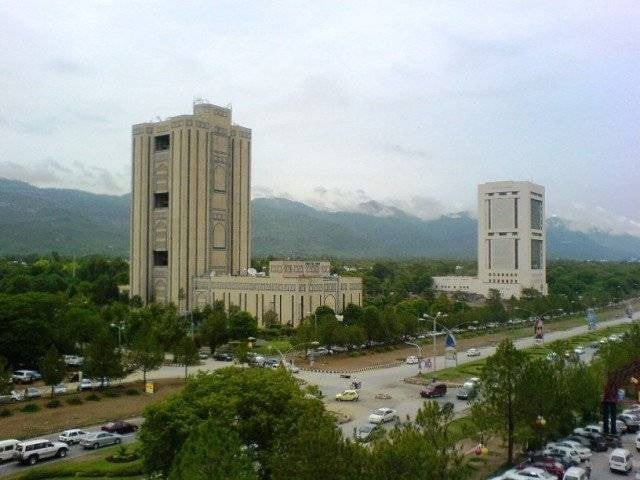Senators lambast CDA, utility suppliers for illegal buildings
Civic body deflects blame onto union councils, power and gas suppliers

Civic body deflects blame onto union councils, power and gas suppliers. PHOTO: FILE
The Senate Special Committee on Non-Implementation of Building Codes and Civic Regulations, which met at the Parliament House on Thursday, termed the non-implementation of rules as a criminal negligence of the Capital Development Authority (CDA), Islamabad Electric Supply Company (IESCO), Sui Northern Gas Pipelines Limited (SNGPL) and other departments providing basic amenities.
Representatives of CDA, IESCO, SNGPL, the Federal Investigation Agency (FIA) and others briefed the committee on the steps taken to stop illegal constructions.
CDA officials said that around 84 buildings had been built illegally in Sector E-11 of which 41 had been sealed.
They added that the sponsors of these buildings had failed to obtain no-objection certificates (NoC) from the CDA. Similarly, in Sector H-13, the civic body had issued notices to the people who were involved in illegal construction.
Further, the committee was told that for around 25 buildings being built illegally in the capital, the CDA had asked the IESCO, SNGPL and other utility providers to refrain from providing them with services.
This action, the committee was told, was sanctioned by the cabinet in 2004 after it decided that no utility connection would be approved in the capital without securing an NoC from the CDA.
The CDA further said that the relevant union council was responsible for the provision of water supply and provision of basic amenities in Sectors E-11, and H-13.
“CDA took action against the developers and construction companies [building illegal buildings] by blocking their further illegal constructions,” officials said, adding that the respective union councillors had failed in their responsibility to implement building codes.
At this convener of the committee reminded the civic body that it only took action when 90 per cent of construction work had been completed.
Senator Taj Haider said that if builders were involved in a criminal act, then they must be jailed.
“Where was the CDA when builders were publishing advertisements for these buildings and a large amount was being spent on advertisements? Why were people involved in this not identified?” the convener asked.
Islamabad Mayor and CDA Chairman Sheikh Anser Aziz told the committee that before building codes were established in 2016, the area was controlled by the union councils. He added that the CDA took action against illegal construction once building codes were approved.
Moreover, he said that before the codes were set up, Golra and Sector E-11 were considered to lie outside of CDA’s limits.
“People built buildings in these areas on their own while union councils did not take action,” Aziz said.
CDA officials further told the committee Sector H-13 was being claimed by the cantonment under the ICT Act 1994.
At this convener asked if the cantonment asks to hand over parliament, would CDA do so?
Senator Abbassi pointed out that first CDA had issued the NoCs but now it was objecting to them. Senator Ayesha Raza Farooq pointed out that these buildings were not built overnight and why did the regulators not take action before.
Utility suppliers disagree
IESCO chief executive officer told the committee that National Electric and Power Regulatory Authority (Nepra) regulations did not require an NoC from either the CDA or the Rawalpindi Development Authority (RDA) to provide new electricity connections.
He, however, said that five housing societies in Sector E-11 area were provided connections after the CDA approved their layout plans.
Despite that, the IESCO official said that they had stopped approving connections following the restrictions introduced by CDA. IESCO CEO in a written reply said that once a building is built, they are pressured by different quarters to provide connections.
Published in The Express Tribune, December 15th, 2017.



1724319076-0/Untitled-design-(5)1724319076-0-208x130.webp)















COMMENTS
Comments are moderated and generally will be posted if they are on-topic and not abusive.
For more information, please see our Comments FAQ